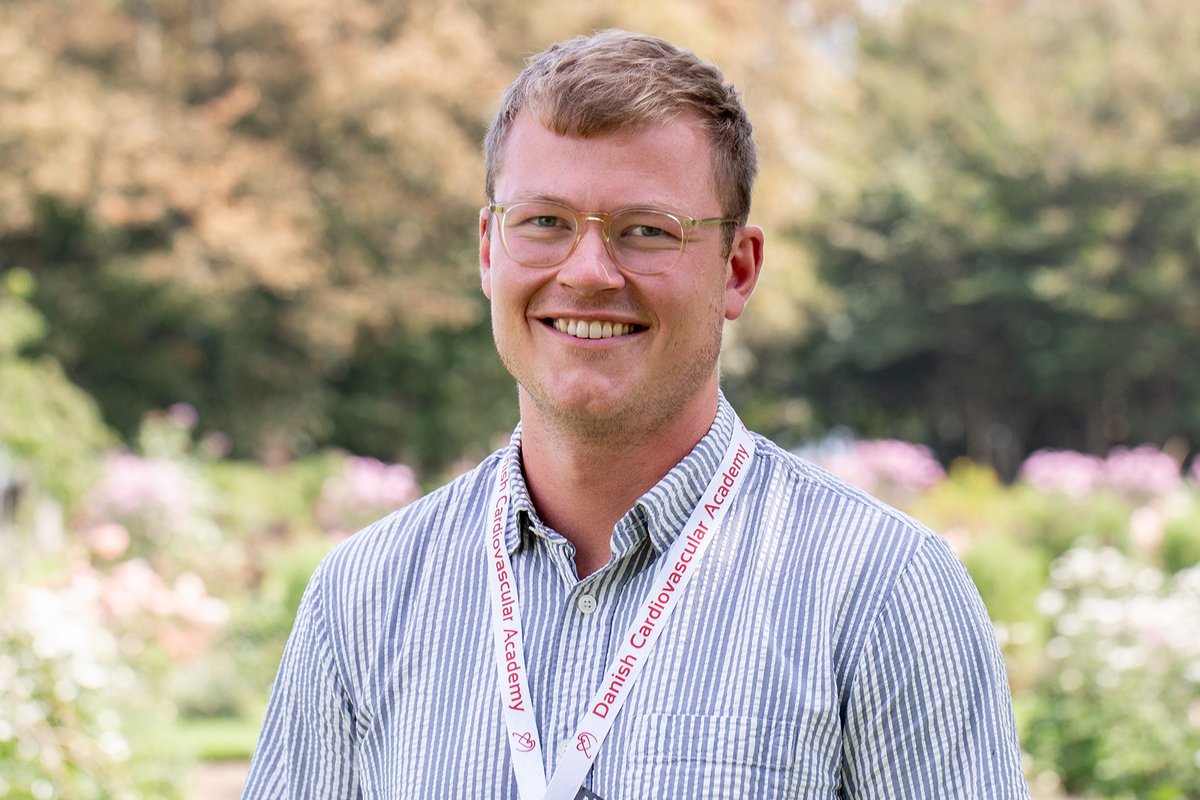Tobias Skjelbred - PhD Scholarship 2023
Project summary:
Polypharmacy and sudden cardiac death in a nationwide, unselected population
Is polypharmacy an important undiscovered risk factor of sudden cardiac death? The existing knowledge on sudden cardiac death (SCD) indicates that several co-existing factors can create “the perfect storm”, making the heart electrically unstable, causing cardiac arrest. We have previously shown that having more than one drug, across many pharmaceutical classes, in the body at concentrations currently not defined as toxic, is associated with high risk of SCD. However, until now it is unknown how different polypharmalogical combinations promote SCD. Therefore, we plan to combine knowledge obtained from the unique nationwide Danish registries with models of cardiac electrophysiology to provide unprecedented insights into how polypharmacy may dispose to SCD. This has the potential to save many lives that end prematurely because of exposure to potentially dangerous combinations of prescription pharmaceuticals.
Project Title
Polypharmacy and sudden cardiac death in a nationwide, unselected population
Background
SCD is a public health problem that accounts for a substantial proportion of mortality in Denmark, as well as worldwide. In addition to the personal consequences, SCD is a tragic event for those close to the victim. SCD is also a societal burden as many of the victims are of working age and have functioned normally in their workplace and civil society shortly prior to death. A recent study from our research group has presented estimates of the total burden of SCD in a Danish, nationwide population over the course of a calendar year. This study identified 6867 cases of SCD, and approximately half of all SCD victims did not have a cardiovascular diagnosis in the 10 years prior to death. Although there has been an increased focus on cardiopulmonary resuscitation and post-resuscitation treatment, survival after sudden cardiac arrest is low. Present preventive strategies focus on implantable cardioverter-defibrillators (ICD) for individuals in high risk of sudden cardiac arrest because of an underlying cardiomyopathy or reduced left-ventricular ejection fraction. However, half of the victims of SCD do not have a cardiovascular diagnosis and are therefore not eligible for an ICD. Consequently, new risk factors of SCD must be identified to improve risk stratification in the general population.
Aim
Current risk models are not able to discriminate between risk of SCD and all-cause mortality. Therefore, further research into the epidemiology and mechanisms of SCD is necessary. Our aim is to provide knowledge on how polypharmacy and SCD interact in an unselected, nationwide setting. Such knowledge may be used to identify combinations of prescription pharmaceuticals that are associated with SCD. Further, this knowledge will help physicians reduce the risk of SCD and the tragic impact it has on individuals and communities.
Methods
This project will be based on a database of previously identified cases of SCD in Denmark in 2010. Using a nationwide and multisource approach it was possible to identify all cases of SCD in all age groups (6,867 SCD). Data from Danish national registries combined with our nationwide SCD data gives unique insight into the use of prescription drugs leading up to SCD.
Our research group is a part of the ESCAPE-NET consortium (“European Sudden Cardiac Arrest network - towards Prevention, Education and New Effective Treatments”). This consortium shares data on sudden cardiac arrest from 16 partners in 10 countries across the EU. We plan to use available data from the ESCAPE-NET consortium to validate findings in the Danish cohort.
Initially, polypharmacy combinations found in patients will be tested by the Langendorff set-up of isolated beating heart, which constitutes a robust and efficient technological platform for screening. Secondly, where applicable, we will conduct investigations on Landrace pigs, in order to get as close as possible to human physiology. This will provide a deeper insight into the mechanisms linking polypharmacy and SCD.

Tobias Skjeldbred
- MD
- University of Copenhagen
Main supervisor:
Jacob Tfelt-Hansen, MD, DMSc, Consultant cardiologist, Professor, Department of Cardiology, Rigshospitalet & Section of Forensic Genetics, University of Copenhagen
Co-supervisors:
Thomas Jespersen, PhD, DMSc, Professor, Department of Biomedical Sciences, University of Copenhagen
Thomas Hadberg Lynge, MD, PhD, Department of Cardiology, Rigshospitalet
Bo Gregers Winkel, MD, PhD, Consultant cardiologist, Department of Cardiology, Rigshospitalet